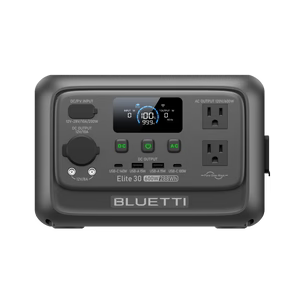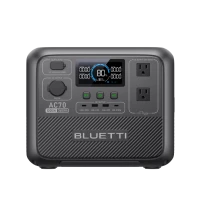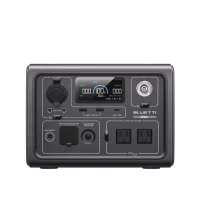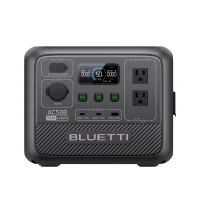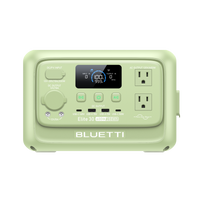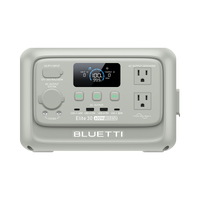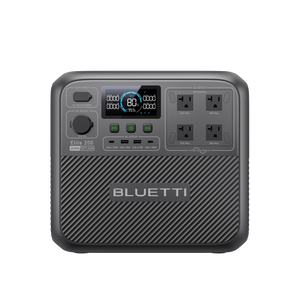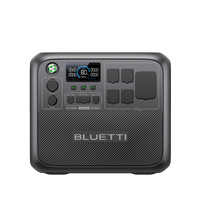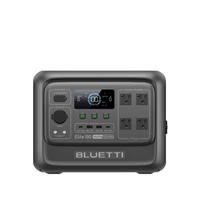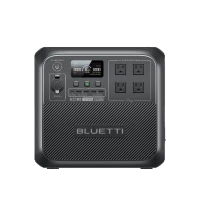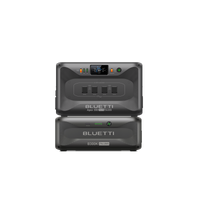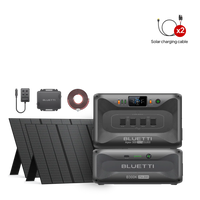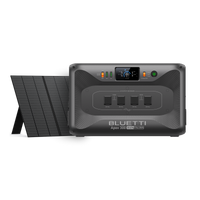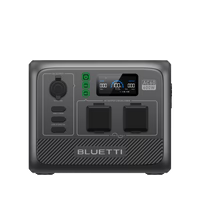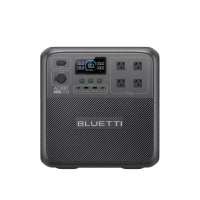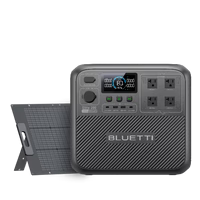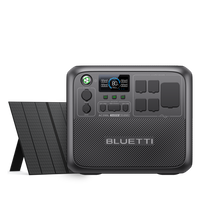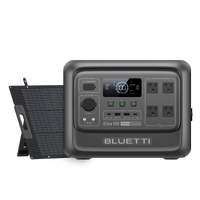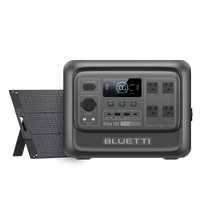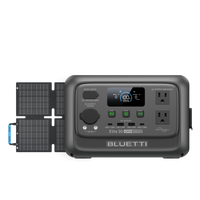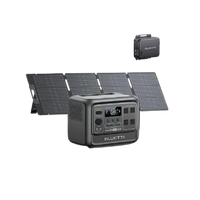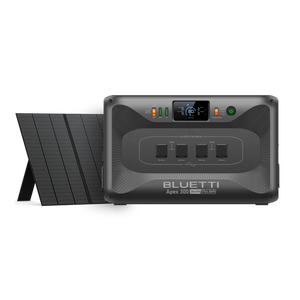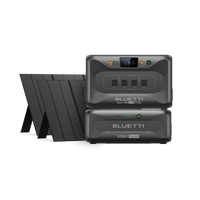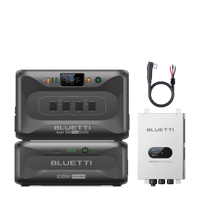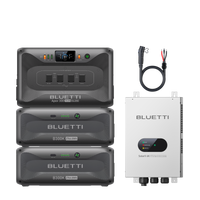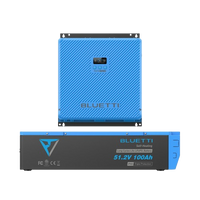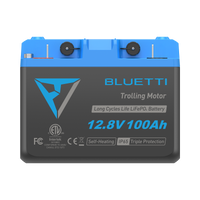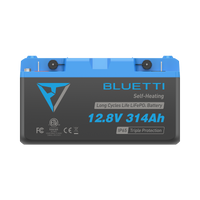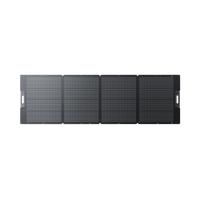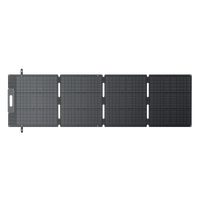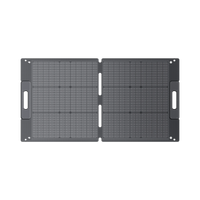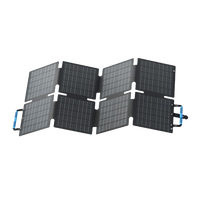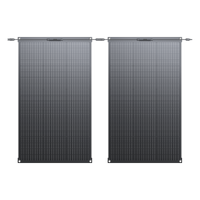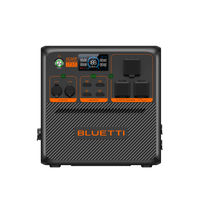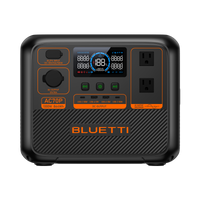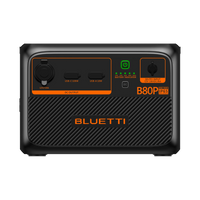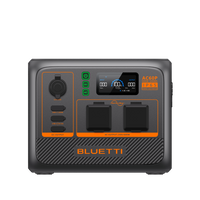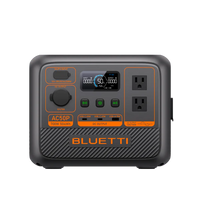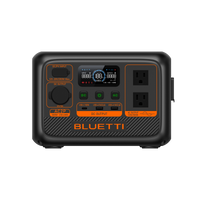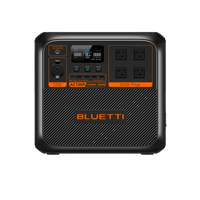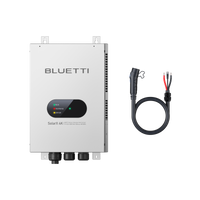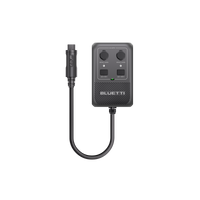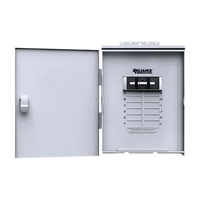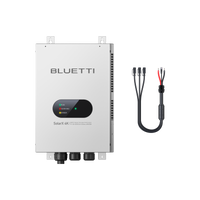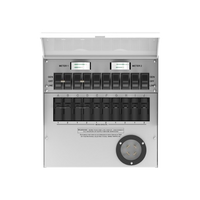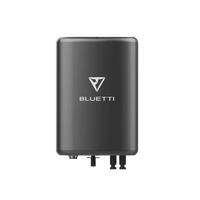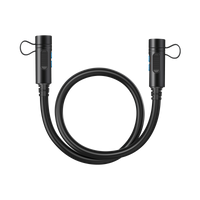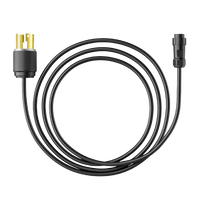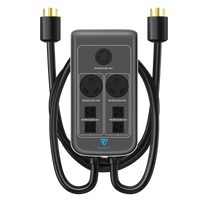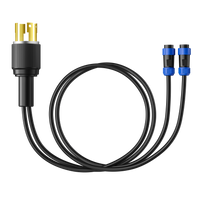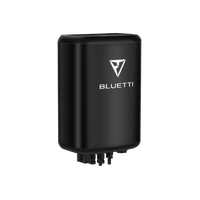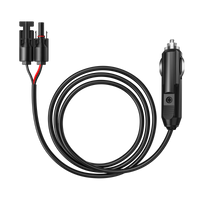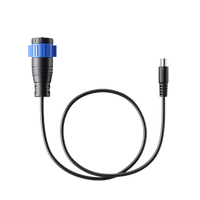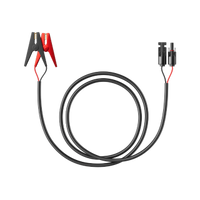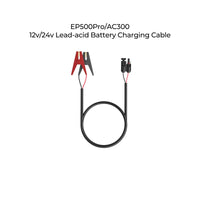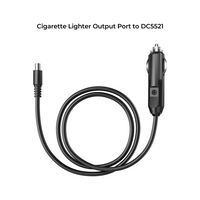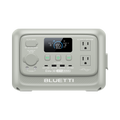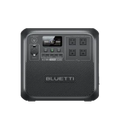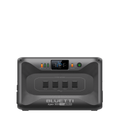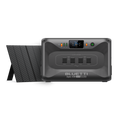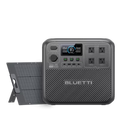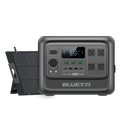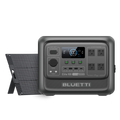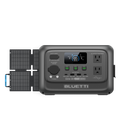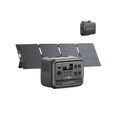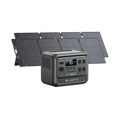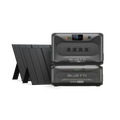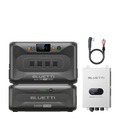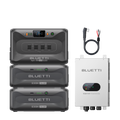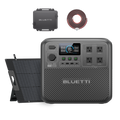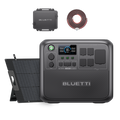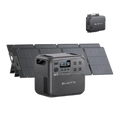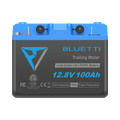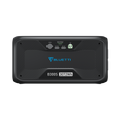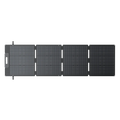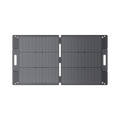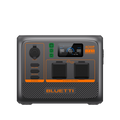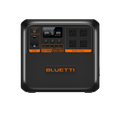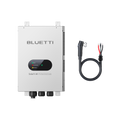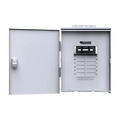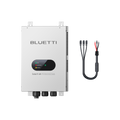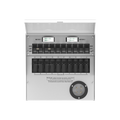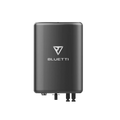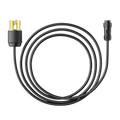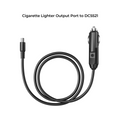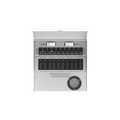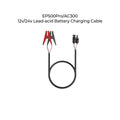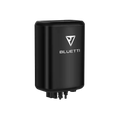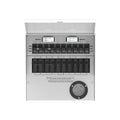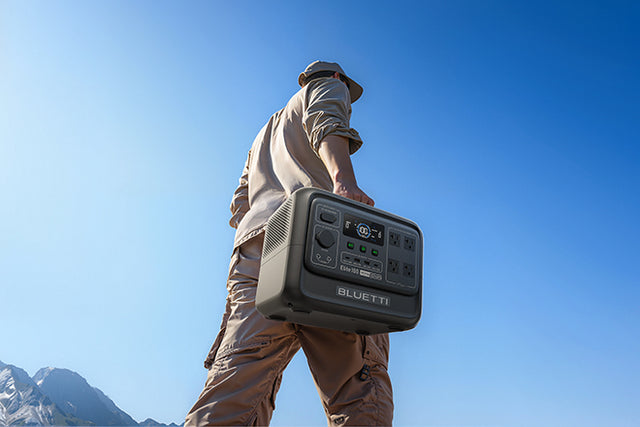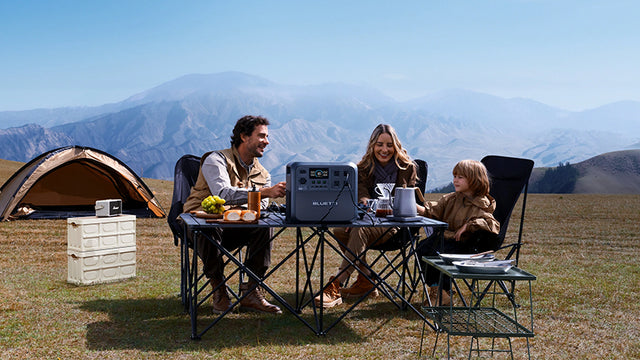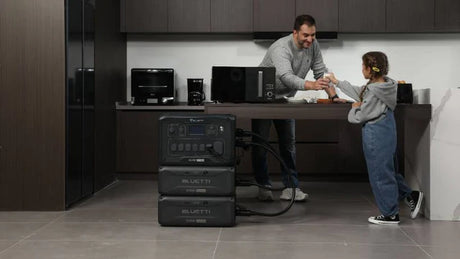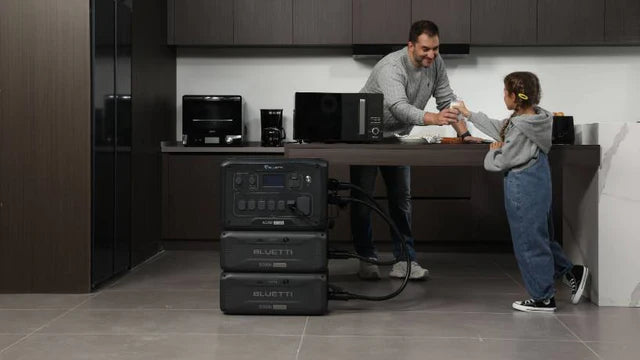While the grid is the backbone of our modern electric world, the humble generators also play a very significant role: they kick in when the grid falters. With the decision of propane vs gas generators and solar generators hanging in the balance, cost consideration is the primary concern. Propane, because it burns clean and has a long shelf-life, somewhat covertly tells you that you will save money. Gasoline, which is very common and powerful, makes the first moves with vigor. On the other hand, solar generators, extracting the sun’s usefulness, are a silent but forceful advocate for sustainability. Here, you will be unraveling the complexities of both, contemplating their characteristics, costs, benefits, and environmental effects, to find the one that harmonizes with your requirements and principles.
Types of Generators
Propane Generator
Propane generators are praised for their ease of start and user-friendliness, particularly in times of crisis when other fuel sources may not be available. They are not subject to a fuel degradation process, hence they give the much needed reliability over the period of their usage. Maintenance is extremely little and they are mentioned to be safe due to the fact that propane burns in a clean way. On the other hand, they often possess a shorter lifespan and are also less fuel-efficient than the others. In addition to this, they are also in constant need of propane at hand, which may turn into a cumbersome one.
Gas Generator
Generators that run on gasoline are often preferred for their portability and simplicity in operation. They are the default option for instant and portable power, particularly in off-the-grid sites where fuel is readily accessible. On the other hand, they produce more exhaust that may cause an unpleasant and toxic experience if used in an enclosed space. Gas Generators also require regular maintenance intervals like the changing of oil and spark plugs to keep them working. The danger of the volatility of gasoline also manifests itself in the process of transportation and storage.
Solar Generator
Solar generators use renewable energy sources, they have low life cycle costs, and they operate without noise. They are very good if you are an eco-conscious user and you have an adequate supply of sunlight. A solar generator's initial cost is greater than conventional generators, but they provide an operating cost that is practically non-existent. The key drawback here is the fact that these sources do not have a high power supply or a quick charge time, a situation that can come as a limiting factor during prolonged sunless weather or for high-power applications.
Propane Generator Vs. Gas Generator Vs. Solar Generator

- Fuel Availability: Unlike gasoline options, propane ones operate with propane, which can be stockpiled for extended periods of time, thus being a perfect solution in case of disaster. Generators that run on gasoline are the simplest cases to use, but they rely on the fuel source that has the shortest shelf life. On the other hand, solar options convert the sun’s rays into power, which is an inexhaustible electricity source if the sun is out.
- Cost-Effectiveness: To start with, gas cases are less costly than propane and solar types. Nevertheless, being refueled with gas or propane can raise costs in the long run, unlike solar generators that only demand a purchase after which sun is free.
- Environmental Impact: Solar generators apply the use of clean and renewable energy that makes them the most eco-friendly option. Propane is cleaner than gasoline but the emission of greenhouse gasses by propane is still the case. Gas generators are the most ecologically unfriendly due to greater emissions.
- Maintenance: The solar generators need the least maintenance; they just require cleaning the panels. Propane generators have medium-level service requirements, whereas gas generators require a fairly considerable maintenance due to their mechanical complexity.
- Efficiency: Solar panels can convert received sunlight up to 23% in electricity compared with gas generators which convert around 35 to 40% of the fuel into electricity. Gas generators make up the midpoint between these two extremes, providing a good mix of efficiency and cleaner energy.
- Noise Levels: The most striking advantage of solar generators is that they function noiselessly. Propane generators are generally quieter than gas generators that release more noise through their internal combustion engines.
- Portability: Gas generators are typically lighter weight as compared to propane generators that usually come in larger sizes and are harder to transport. Solar generators have a compact size and can be portable, but their efficiency is dependent on solar energy and sufficient light.
- Lifespan: Solar generators are known to last for a long time when properly maintained and often outlive gas and propane generators which tend to wear out due to mechanical issues over time.
Is It Cheaper to Run a Generator on Propane?
Figuring out whether it is less costly to use a propane generator involves many aspects. One of the key advantages of propane is its reliability costs especially when it comes to long-term consumption. Propane price can be less volatile than the gasoline price, thus giving an accurate cost analysis. The propane generators usually end up using more fuel in order to produce the same amount of electricity than gas generators. Consequently, they have a lower fuel efficiency.
On the other hand, the initial cost of a propane generator may be higher than a gas one, and this may put it at a disadvantage as compared to a gas generator. Furthermore, propane’s price edge is more discernible with increasing frequency of use because it has a longer shelf life and purchases in bulk may be done at possibly cheaper prices.
Is It Worth Converting the Generator to Propane?
A generator change to propane could be a good idea. Propane is more stable in chemical terms, and thus safer to store than gasoline. It can be stored longer, providing fuel accessibility during emergencies. Additionally it is much healthier for the environment as it produces less emissions and the fact that portable tanks are employed makes it more mobile. Although the conversion may be pricey at first, the overall benefits of reduced maintenance, cleaner burning, and the possibility of cheaper fuel leave this option very attractive for many. Though in a way, think about your power needs, as perhaps propane provides less range relative to the other alternatives.
Factors Need to Consider When Choosing a Generator
- Power Requirements: The appliances you plan to operate will decide whether the generator size is enough for the demand or not. You don’t want to oversize, which will be costly.
- Fuel Type: Put fuels availability and storage in your mind. Gasoline is the most common; however, it has a short shelf life, propane is relatively stable and can be stored longer. Solar generators completely eliminate fuel issues.
- Portability: If you think about yourself as a person who prefers to relocate the generator, size and weight might be of primary concern to you. Wheels and handles can help to make it more portable.
- Noise Level: Generators produce different noise levels. Inverter generators are quieter and as a result, they will be good to use in camps and in residential areas.
- Maintenance: Know the maintenance needs. Gas generators usually need more maintenance than propane ones or solar options do.
- Environmental Impact: Look at the sustainability and the environmental impact. Solar generators are a clean, renewable source, however, the fuels such as gas and propane release pollutants.
- Cost: Consider the initial purchase price, ongoing fuel costs, and maintenance expenses. Initial costs of solar generators are higher but the overall operating expenses are lower thanks to free energy by the sun.
Is a Solar Generator a Perfect Choice?
Solar generators offer a renewable energy supply, which is an advantage for the ecological balance. Also, they can be a financially beneficial option in the long run and are mobile and adaptable, thus making them useful for activities like camping or in emergency scenarios. Moreover, they perform noiselessly, which is unlike the conventional generators.
Recommended Solar Generators

It has a 2,200W AC pure sine wave inverter and a 2,048Wh capacity. The battery has more than 3,500 life cycles to 80%. The system is also expandable up to 8,192Wh with additional cells. It is equipped with the option of 7 ways to recharge which include solar and has a rated capacity of 900W for maximum input from solar source. The double charging capability gives you a shorter charging time. The smart control and monitor feature in the BLUETTI App brings in convenience. The provided PV200 solar panel has monocrystalline solar cells of up to 23.4% efficiency and a reliable ETFE.

This kit stands out from the crowd thanks to professional-grade IP65 water and dust resistance. It is equipped with a 2,400W AC outlet, which can be expanded up to 10,136Wh by means of extra batteries. A parallel connection gives the ability to achieve a huge 20,272Wh capacity and 4,800W/120V power. It can recharge from 0-80% in 45 minutes by using a 2,200W AC input. It further has a maximum solar input of 1,200W. Similarly, it also offers smart control and monitoring. The PV200 solar panel in this kit has the same high-efficiency cells and resilient coating as the one included in the AC200MAX.
Final Thoughts
To sum up, solar generator models like the BLUETTI ones, are the best. They are ideal solutions for greener, economical, and exclusive power supply options. Although propane cases may appear more economical at first, it is important to note that solar options offer a greater long-term saving and environmental benefits than propane choices. This ultimately will depend on your specific power requirements and life circumstances.
